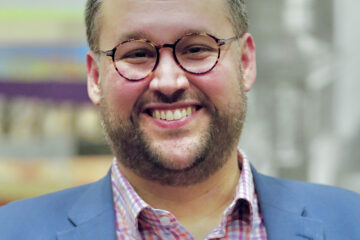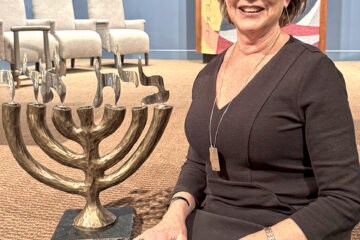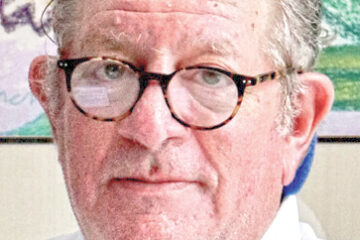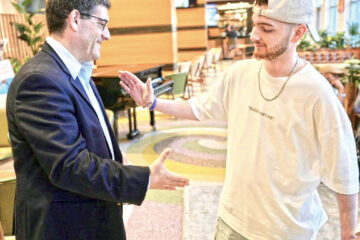Importance of genetic screening focus of Hadassah opener
By Marshall Weiss, The Dayton Jewish Observer

Judy Grampp, a paramedic who works in the ER at Good Samaritan Hospital, lost her 31/2-year-old grandson, Joey Cross, to Tay-Sachs disease on Oct. 17, 2010. Grampp is now the driving force behind an educational panel for the community about Tay-Sachs and other genetic diseases found more frequently among Jews.
The Dayton Chapter of Hadassah will present Tay-Sachs is no longer just a Jewish disease: a program in memory of Joseph Morris Cross as its opening meeting program — exactly one year after Joey’s death — on Monday, Oct. 17 at 7 p.m. at the Boonshoft CJCE.
Partners for the program are the DJCC’s Early Childhood Services and Temple Israel.
The name of the program is the message Grampp hopes to convey.
“Through the National Tay-Sachs organization, which I’ve worked with since Joey was first diagnosed, I have found that these diseases aren’t Jewish diseases anymore,” Grampp says, “that the majority of people who have children with Tay-Sachs are either mixed couples or people who have no history of any Ashkenazi Jewish background that they know of.”
Grampp’s daughter, Rachel, and her husband, Ron, didn’t consider genetic testing before they had Joey; Ron wasn’t Jewish.
“It means the world to me that this shouldn’t happen to other people,” she says. “If we can prevent one child from being born with this disease, because they’re doomed to die, then that’s what my goal is.”

Panelists for the program will be OB/GYN Dr. Stuart Weprin, Temple Israel’s Rabbi Karen Bodney-Halasz, and Geneticist Dr. Marvin Miller of Dayton Children’s Medical Center.
“If you’re concerned about this relatively common disorder and you’re of Ashkenazi Jewish background,” Miller says, “you cannot totally discount the possibility that even if you marry someone who’s not Ashkenazi Jewish, that you could still have a child that has Tay-Sachs disease. This mutation is present in all populations. In Ashkenazi Jews, it’s about 10 times greater. So the risk is much less when one of the partners isn’t Ashkenazi Jewish but it’s not entirely a zero-risk game.”
Grampp says Rachel and Ron won’t be at the program. “They cannot do this,” she says. “It’s too hard for them. But I’ve got photos on CD of Joey and his life. I want the young people to understand this disease. Non-Jewish obstetricians should be aware of this too, and talk to their patients.”
The cost of the program is $5. R.S.V.P. to the Hadassah office at 275-0227 by Oct. 12.
Related: To protect our Children by Rabbi Karen N. Bodney Halasz





